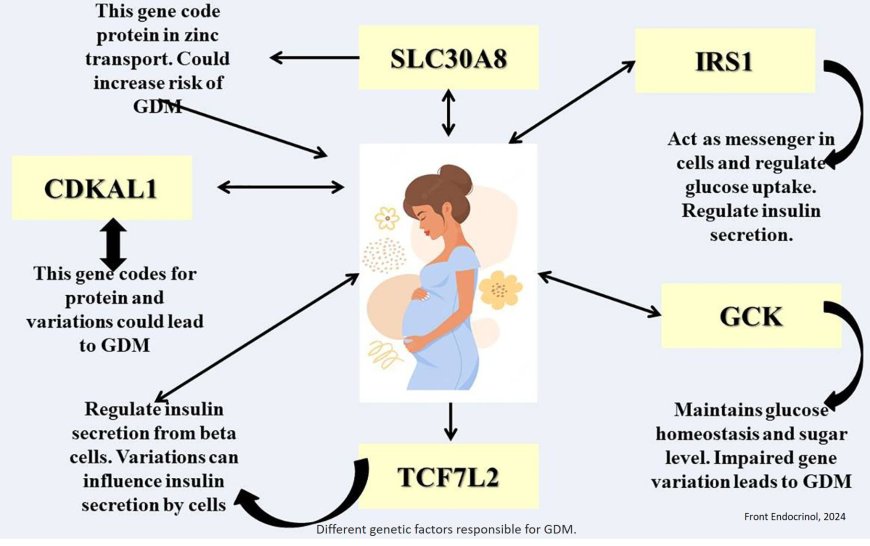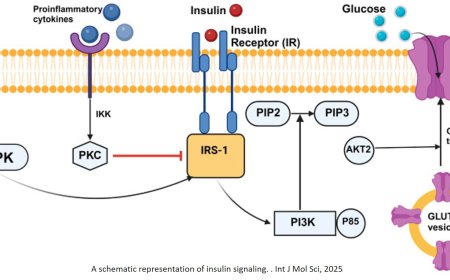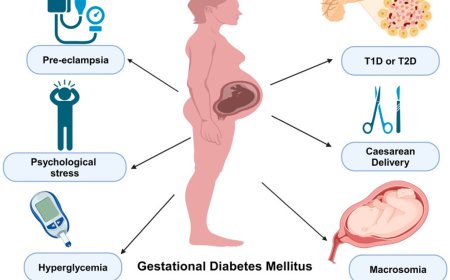Genetic factors in Gestational Diabetes

Gestational diabetes mellitus (GDM) is a complex condition influenced by both genetic and environmental factors. Here are some genetic factors that contribute to the development of GDM:
Genetic Predisposition
1. Family history: Women with a family history of diabetes, especially first-degree relatives, are at increased risk of developing GDM.
2. Genetic variants: Specific genetic variants, such as those associated with insulin resistance and pancreatic beta-cell dysfunction, can increase the risk of GDM.
Genetic Loci
1. MTNR1B: Variants in the MTNR1B gene, which encodes the melatonin receptor 1B, have been associated with an increased risk of GDM.
2. KCNQ1: Variants in the KCNQ1 gene, which encodes a potassium channel, have been associated with an increased risk of GDM.
3. TCF7L2: Variants in the TCF7L2 gene, which encodes a transcription factor, have been associated with an increased risk of GDM.
Genetic Pathways
1. Insulin signaling pathway: Genetic variants that affect the insulin signaling pathway, such as those in the INS, INSR, and IRS1 genes, can contribute to insulin resistance and GDM.
2. Pancreatic beta-cell function: Genetic variants that affect pancreatic beta-cell function, such as those in the SLC30A8, CDKAL1, GCK, PDX1 and NKX6-1 genes, can contribute to impaired insulin secretion and GDM.
Epigenetic Factors
1. DNA methylation: Epigenetic changes, such as DNA methylation, can affect gene expression and contribute to the development of GDM.
2. Histone modification: Histone modification can also affect gene expression and contribute to the development of GDM.
Interplay between Genetic and Environmental Factors
1. Gene-environment interactions: The interplay between genetic and environmental factors, such as diet and physical activity, can contribute to the development of GDM.
2. Epigenetic regulation: Epigenetic changes can be influenced by environmental factors, such as maternal nutrition and stress, and can contribute to the development of GDM.
Implications for Diagnosis and Treatment
1. Genetic testing: Genetic testing may be useful in identifying women at high risk of developing GDM.
2. Personalized medicine: Understanding the genetic factors that contribute to GDM can help guide personalized treatment strategies.
3. Lifestyle interventions: Lifestyle interventions, such as diet and physical activity, can help prevent or manage GDM in women with a genetic predisposition.
https://sciencemission.com/Genetic-factors-underlying-GDM
https://sciencemission.com/Genetic-and-Epigenetic-Factors-in-GDM












